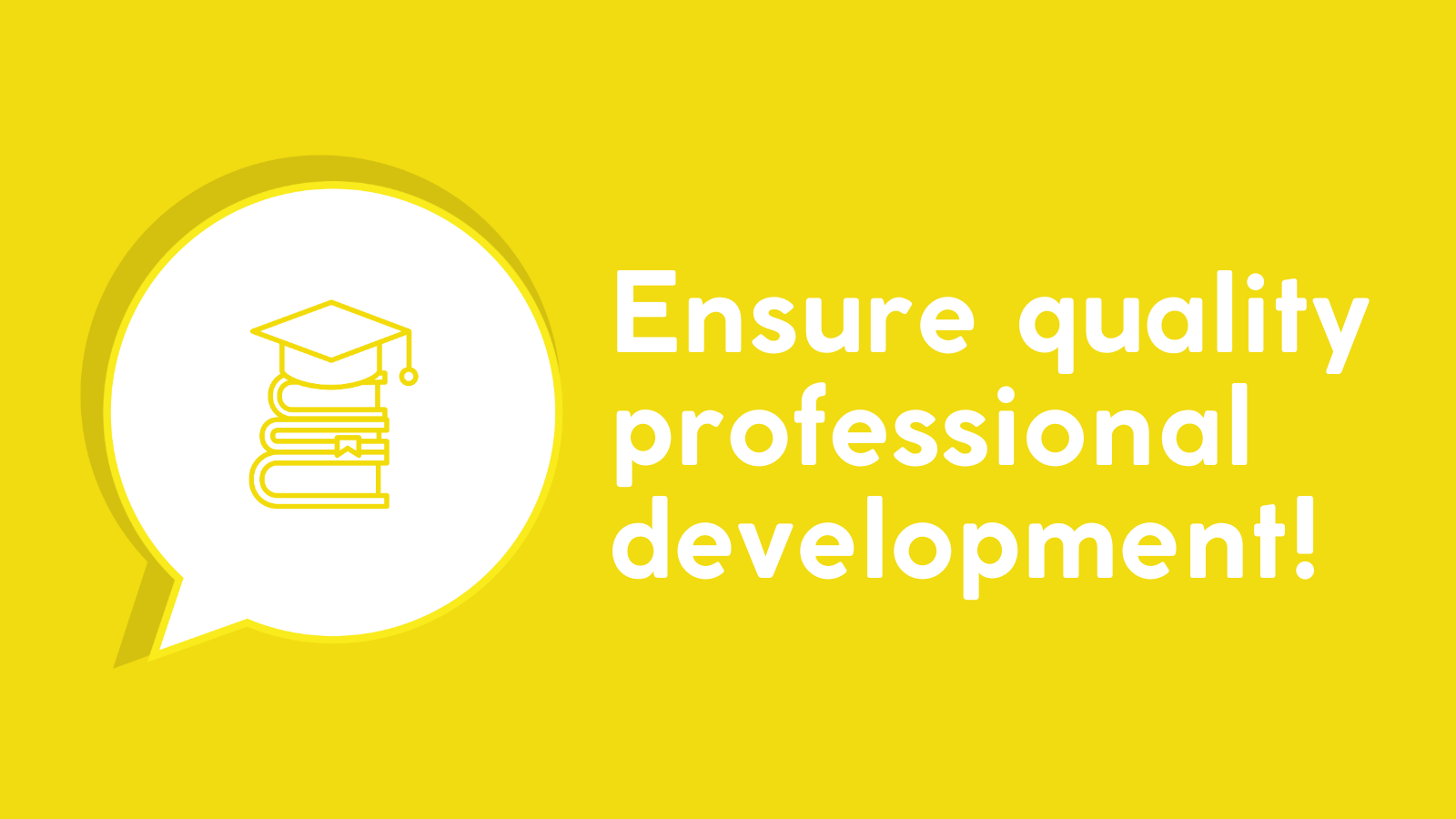
Improving the attractiveness of the teaching profession by respecting qualification requirements and supporting professional development
In response to new educational demands, teachers must be equipped with the necessary skills, including those for the digital and green transition, democratic citizenship and transversal skills. This change in educational demands should not imply that teachers should adapt constantly. To ensure quality education for all students, teachers and trainers should be qualified, motivated and supported through increased and free access to quality and inclusive initial education and continuous professional development (CPD).
When accessing the teaching profession, teachers must hold sufficient qualifications and skills that should align with decent salary. Nowadays we assist to the lowering of the professional standards for teachers as a response to teacher shortage, acknowledged as a serious challenge in many European countries. The difficulty in attracting and retaining education staff – coupled with the ageing of the teacher population - is caused by factors like low academic status of teacher training programmes, unattractive salaries, excessive workload, low academic status of teacher training programmes. These factors create a vicious cycle, since lower qualification expectation lowers the attractiveness of the profession, and less talented and motivated young people will apply to be teachers. To address these issues and tackle teacher shortages, the Education Council has recently invited the Member States to engage with social partners to reduce teachers’ shortages by supporting the professional development and improve the working conditions and well-being of teachers. ETUCE underscores the need to maintain the quality of the teaching profession with high qualification requirements, quality teacher training and ensure attractive starting salary levels and career progression. Those wishing to work in the teaching profession without appropriate qualifications, coming from other industry sectors or non-EU countries, should be supported to meet the requirements.
Linking salaries to qualifications is crucial for equitable compensation in teaching, as underscored by ETUCE. The principle of equal pay for equal work and promoting the highest level of qualifications for all teachers is essential in elevating the status and attractiveness of the teaching profession. Initial teacher education programmes, crucial in filling the qualification requirements and supporting teachers to enter the profession, are insufficiently funded, hardly accessible and often lack quality, according to ETUCE member organisations. This contributes to shortages in several countries such as Slovakia, Netherlands, Greece. Research conducted on the inadequacies of initial teacher training notably reveals a lack of preparation of novice teachers for classroom work and a deficiency in practical learning, with a predominant focus on academic descriptions of pedagogy. The failure in equipping teachers and trainers with key competences, digital skills – lack highlighted by the Education Council – and strategies of individual support to learners and identification of those at risk of early school leaving, adds another layer to the challenges in teacher training.
Concerning access to employees’ training, there is still disparity in public and private industry sectors. Teachers are burdened still in too many European countries with the financial responsibility of their own continuous professional development (CPD) and are compelled to undertake it outside working hours, impacting work-life balance and diminishing the attractiveness of the profession. The European Pillar of Social Rights grants workers the right to training, however social dialogue is weak or lacking in several countries to make it as a reality. The need for equal access to high-quality, inclusive CPD, available free of charge and within working hours remains a demand of ETUCE from policy makers.